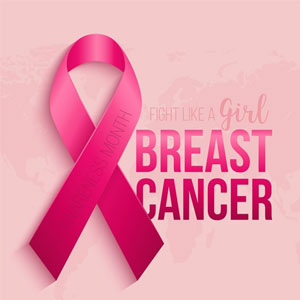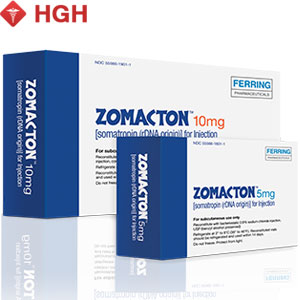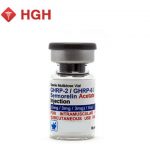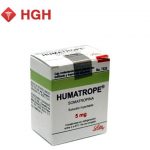
Studies in recent years have shown promise for a new breast cancer treatment that may not only be used to treat the condition, but may also be used as a method of prevention. This discovery deals with the use of testosterone for breast cancer treatment and, as unlikely as it may seem, research has established promising results. Below, we'll take a look at those studies and at the possibility of preventing breast cancer altogether.
Research On Testosterone For Breast Cancer Patients Shows Promise
In a 2013 study, researchers selected a group of 1,268 women for the extensive study. The group was divided into three groups: one-third received no hormone therapy, one-third received implanted testosterone pellets, and the final group received implanted pellets that contained both testosterone and anastrozole. The women receiving the implants were given a local anesthesia and the pellets were implanted in either their buttocks or abdomen.
The anastrozole was administered in some women, because that drug is known to prevent the body from turning testosterone into estrogen. The anastrozole was given to the third test group to ensure a measure of protection in obtaining accurate results. Researchers were eager to protect the study to arrive at a realistic evaluation of the testosterone breast cancer effect. The incidences of breast cancer among the women who received testosterone treatment was only half that of those women who received no hormone therapy at all. The hormone treatments were administered every three to four months and the researchers conducted follow-up exams five years after the treatments began.
Women Have Testosterone Too
While many people believe women have naturally low testosterone levels, that's far from the truth. In fact, testosterone is the highest sex hormone in both genders. It's several times higher than the level of estradiol (the primary type of estrogen) most women have in their bodies. Testosterone is found in the ovaries and the adrenal glands, but there are also receptors for the hormone found in the breasts of the woman. Women have testosterone receptors throughout their bodies.
The idea of using testosterone for breast cancer was introduced upon discovering that menopause causes a deficiency in the hormone. Low testosterone levels can begin affecting women as early as their thirties and affect them in multiple ways. Immune function, libido, and mental and physical health can all be impaired by low testosterone levels in women. In addition to relieving an impaired libido, testosterone supplements have been shown to relieve many other symptoms of menopause. The typical and problematic symptoms of hot flashes, night sweats, depression, and vaginal dryness have all been improved by testosterone supplements. Additionally, multiple studies have found that testosterone hormone therapy inhibits the growth of breast cancer cells.
Testosterone And Breast Cancer Prevention
While the studies on testosterone therapy for breast cancer are showing more promising results as research continues, women are already reaping the benefits of this new treatment. In the past, women have been prescribed synthetic hormones, but these treatments carry a heavy price tag. Among the most common side effects of synthetic hormones is the increased risk of developing breast cancer, as well as stroke, heart disease, blood clots, and dementia. As a natural and necessary hormone to the human body, testosterone contributes to none of these risk factors. Aside from the previously listed benefits on menopausal women, patients are discovering a wide range of unexpected positive side effects. The therapy has proven to reduce problems associated with incontinence and urinary urgency, as well.
Meanwhile, researchers at Holland's Utrecht University found that "rational decision-making, social scrutiny and cleverness" were all enhanced in women taking testosterone hormone therapy. Going along with that, Dr. Stephen Center in San Diego reports that depression and anxiety are significantly relieved in his female patients, when treated with testosterone. Dr. Center says he has been prescribing testosterone therapy for 20 years and adds that the overall demeanor of his patients is improved by the treatment. Specifically, he says self-confidence, ambition, and their general mental states are all positively affected.
Testosterone has an effect on the physical body as well. Bone density and lean muscle mass are all enhanced, while body fat and cellulite are reduced in women on the therapy. Dr. George Yu, a urologic surgeon, works as an aging specialist at Aegis Medical and Research Associates in Annapolis, Maryland. He says testosterone helps to firm up and tone the body in older patients with low levels of the hormone.
"Testosterone is the best remedy available for eliminating midlife upper-arm batwings," says Dr. Yu of testosterone therapy for breast cancer. Testosterone therapy also increases blood flow throughout the body, which dilates blood vessels. This has the effect of reducing the risk of experiencing a cardiovascular event. Additionally, the increased level of hormones decreases the body's resistance to insulin, protecting againsat Type 2 diabetes.
Is Testosterone Safe After Breast Cancer?
Dr. Rebecca L. Glaser, who conducted the above mentioned study out of Wright State University Boonshoft School of Medicine in Dayton, Ohio, and Dr. Constantine Dimitrakakis of Athens University Medical School in Greece also looked into the possible harmful side effects of testosterone hormone therapy. The study, which is in year five of an ongoing 10-year project, found no permanently harmful side effects in women on the therapy. Testosterone did result in a more androgynous physique in some women, but the researches say the condition can be alleviated by simply reducing the dosage. In fact, Glaser and Dimitrakakis concur that continued testosterone therapy will prevent breast cancer in women who have a high risk for contracting it. Additionally, they believe the hormone therapy, taken by breast cancer survivors, significantly reduces the risk of future recurrences. Their research thus far states that testosterone has a "protective effect" on the breasts, when administered continuously.




